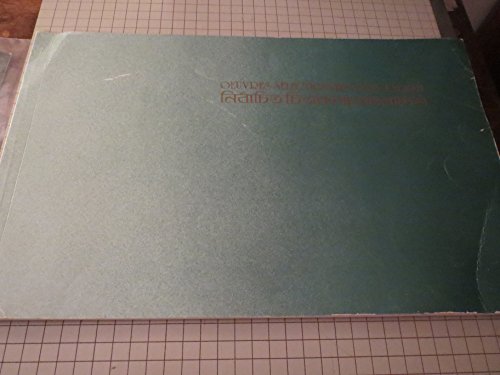Background
Hussain Mohammad Ershad was born on February 1, 1930 in Rangpur, North Bengal (now Bangladesh), of an upper-class Bengali family.



(Oblong over-sized soft cover book titled OEUVRES SELECTIO...)
Oblong over-sized soft cover book titled OEUVRES SELECTIONNEES: Bangladesh. Published in 1988 in Bangladesh. Illustrated with color reproductions of the artists of Bangladesh. See my photographs (8) of this publication on main listing page. (LL-Base2BS-4-top-flat) rareviewbooks
http://www.amazon.com/gp/product/B00NAFLGW8/?tag=2022091-20
Hussain Mohammad Ershad was born on February 1, 1930 in Rangpur, North Bengal (now Bangladesh), of an upper-class Bengali family.
Ershad went to Carmichael College in his hometown.
He graduated, however, from Dhaka University, the premier university of then East Bengal (eastern part of Pakistan later to be called East Pakistan) in 1950.
In 1952 he was commissioned into the Pakistani army, unusual for a budding poet with a university degree, since a military career was generally regarded by Bengali intellectuals as not worth pursuing. With a commission as second lieutenant from the Pakistan Military Academy, he swiftly rose through the ranks of the military hierarchy. He was interned along with other Bengali officers stationed in West Pakistan at the outbreak of the 1971 liberation war and repatriated to Bangladesh in 1973 in accordance with the Simla Agreement between India's Indira Gandhi and Pakistan's Zulfiquar Ali Bhutto.
His rise to higher command positions became meteoric after 1975 when Sheik Mujibur Rahman was assassinated by a handful of junior officers of the army.
Seen as a professional soldier without any political ambition due to his internment during the liberation war and with a flair for Bengali speech writing, he soon became the closest politico-military adviser of Zia.
The first was the assassination (May 31, 1981) of the highly popular President Rahman at the hands of disgruntled army officers led by Major General A. Manzoor, a former comrade-in-arms who had once saved Zia from an unsuccessful yet bloody coup attempt.
The BNP wanted to observe the constitution, which stipulated the holding of an election for a new president within six months of the death of the incumbent.
The deposed President Sattar actually vocally agreed with this assumption.
It also empowered him to contain corruption, especially in high places, by putting a number of the former cabinet ministers, including his current vice president, behind bars.
Between 1982 and 1984 Ershad was involved in making preparations to legitimize his power.
Following essentially the legitimizing process previously used by Zia and other military leaders in the developing world, Ershad scheduled and re-scheduled dates for elections at all levels.
In the parliamentary election his newly floated political party-the Jatio Party-captured a comfortable majority of seats.
Having emerged as the elected president with an elected parliament in which the main opposition party had a voice, Ershad went about consolidating his power through a program of decentralization of civil and judicial administration, together with the constitutional incorporation of the role of the army in the political decision-making process.
However, in the parliamentary election of 1988, which was boycotted by the two largest opposition parties, his political legitimacy certainly dipped. The greatest challenge to Ershad's increasing political power began in August 1987.
In April 1988 mass demonstrations broke out against the president-induced parliamentary bill, but Ershad managed to contain them by vetoing the bill.
Increasing political pressure was also brought to bear on Ershad for the restoration of democratic institutions in Bangladesh by the U. S. Congress.
Ershad called for an early election and on October 15, 1990, was re-elected for another four years. But the victory was hotly disputed. Ershad re-imposed martial law. He lifted the law November 10 after the parliament had granted the president and others freedom from prosecution for any actions taken under military rule.
Ershad resigned the presidency under pressure on December 4, 1990.
Hussain Muhammad Ershad was a former President of Bangladesh, who brought about changes in many policies of government industries, and introduced major land reforms that gave several rights to tenants. He is also known for resting all political power in the hands of military officials, by establishing the martial law.
In 1987, the "United Nations" felicitated Hussain Muhammad with the "UN Population Award", to recognize his efforts to address population issues in Bangladesh.
The next year, he was honoured with the "UN Environment Award", to acknowledge his contribution to a global summit that discussed environmental conservation strategies.
(Oblong over-sized soft cover book titled OEUVRES SELECTIO...)
In 1956 he married Begum Rashad, with whom he had a son and adopted a daughter.
